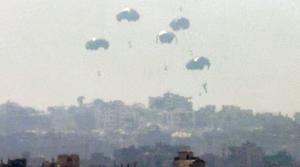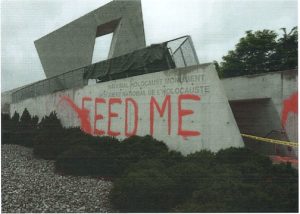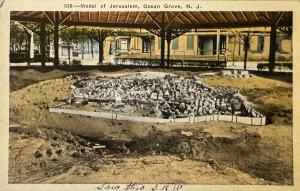It was just past midnight on July 18, 2013, when Rabbi Ovadia Isakov was returning home from work. He went to park his car in front of the house when he saw a person enter the courtyard out of the corner of his eye.
“It all happened very fast,” he says.
He remembers being shot, the bullet going through his body. Two boys of a different family who lived in the same complex as him were still awake and heard what happened. They rushed out to help him while calling the local ambulance.
Two days later, the unconscious rabbi woke up startled in Beilinson Medical Center in Petach Tikvah, but remembers the doctors words calming him down.
“Don’t worry, you’re in Israel,” the doctor said.
Rabbi Isakov was in Toronto recently to talk about how he survived an assassination attempt in Dagestan and to talk about his work as a rabbi in a predominantly Muslim inhabited region of this former Soviet republic.
The event, on Nov. 20, was hosted by Rabbi David Davidov of the Jewish Gorsky Association of Canada at B’nei Torah Congregation. 
When Rabbi Isakov tells this story, he remembers a message he received from his wife before coming home that night. The message said to be careful of the bugs when he would be coming home. Coincidentally enough, his wife’s message came as a timely warning and Rabbi Isakov thanks God every day.
“From the very beginning to the very end of this event, it was God’s hand that saved me,” he says.
Rabbi Davidov speaks highly of Rabbi Isakov and his commitment to serving the Jewish community.
“[Rabbi Isakov’s] story is one of his dedication to the Jewish people and that he survived a bullet to his body,” says Rabbi Davidov. “But here we have a living hero and today he is right in front of us.”
Rabbi Isakov spent 10 days in the hospital in Israel, and then a year in the city of Safed where he returned to painting as part of his recovery.
During his recovery, Rabbi Isakov returned to painting, a passion and talent he discovered early in his childhood.
He initially studied art as post-secondary degree in Makhachkala, then continued his education in Stroganoff Moscow State University of Arts and Industry.
Leading into his religious life, Rabbi Isakov says that for him, art was a way for him to get in touch with his Jewish roots. He says it was thanks to a particular art project leaving him with so many unanswered questions about Judaism that encouraged him with to continue studying the religion further. He set aside his paintbrush and went to study in Yeshivat Tomchei Temimim to become a rabbi.
He served as a rabbi in Derbent for 13 years, but moved to Moscow in order to address the safety precautions they were given after the assassination attack. However, Rabbi Isakov returns to Derbent once and month and on holidays with his family.
Surrounded largely by Muslim neighbours, the Jewish community in Derbent has dwindled to 1,200 Jews. The assassination attempt of the rabbi wasn’t the first of its nature.
Rabbi Isakov recalls arriving to a 200-year old synagogue in Derbent 13 years ago. They renovated the synagogue into a three-storey building with a restaurant. kindergarten and separate mikvah for males and females, all swiftly done “in front of the eyes of the whole city,” says the Rabbi.
During Sukkot that year, Isakov remembers an explosion going off outside of the mikvah. The perpetrator, who was part of a group responsible for 12 other attacks, was later shot by police in an attempt to arrest him after another explosion.
“These [attacks] were already happening,” says Rabbi Isakov as he reflects on the overwhelming Muslim presence in the city. “This is mostly the dark side [of Derbent].”
He says the synagogue holds a daily service, in hopes to preserve the Jewish traditions and culture of the Mountain Jews.







